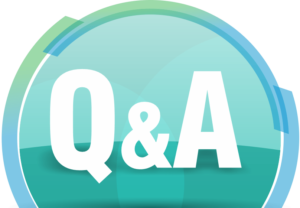Policy
Public Charge

What Is Public Charge?
Public Charge is a term used in immigration law to describe an individual who is dependent on the government. When determining if a person is likely to become a public charge, the Immigration and Nationality Act (INA) requires the government to consider a variety of factors, including the person’s age, health, income/resources, family situation, education, and skills. This is called the totality of circumstances test. The statute does not include an official formula for weighing the various factors; rather, the Federal official has significant discretion in deciding whether to approve or deny an application.
It is important to understand that the public charge assessment is determining whether, in the opinion of an immigration official, the person is more likely than not to become a public charge in the future. A person does not need to have used any benefits to be deemed likely to become a public charge.
The Supreme Court ruled on January 27, 2020, to remove the last nationwide preliminary injunction allowing the Department of Homeland Security to implement the rule. DHS announced that the rule will be implemented and effective starting February 24, 2020.
What does the final Public Charge rule do?
The final rule changes the definition of public charge from a person dependent on the government for financial and material support to “a person who uses or receives one or more specified public benefits for at least 12 months in a 36-month period.” The Administration indicated that if a person uses more than one of the listed public benefits a month, then each benefit would count for a separate month (i.e. if a person is using both Medi-Cal and SNAP in one month, then it would count for two months).
The rule also creates new standards and definitions around the factors considered in the totality of circumstances test, making it harder for people with lower income, health conditions or less education to achieve a successful outcome. The rule explicitly clarifies that receipt of or application for benefits on behalf of someone else does not constitute receipt of benefits.
Who is subject to the Public Charge Assessment?
When an individual who is not exempt applies to enter the country or applies for lawful permanent resident (LPR) status (i e green card) they will be subject to the Public Charge test. Individuals who have become an LPR. will not be assessed for public charge when they apply to become a citizen. However, it is important to note that if somebody with LPR status leaves the country for more than 180 consecutive days (6 months), they can be treated as a new entrant and assessed for public charge and other grounds of inadmissibility when they seek to re-enter the country.
Please be aware that the Public Charge rule will not affect the majority of health center patients. However, the chilling effect that arises from misunderstanding the final rule and its implications could lead many to cease accessing public benefit programs. Many individuals residing in the US., including DACA recipients and people with TPS, are not subject to a public charge test when they apply for or seek to renew their status. However, if these individuals seek a green card. e.g. through a US citizen spouse, they could be subject to the public charge test. Public charge does not apply to Refugees, Asylum, survivors of domestic violence, and victims of trafficking or other serious crimes, special immigrant juveniles, temporary protected status (TPS), and certain other groups.
What Public Benefits programs are included in the final rule?
The public benefits listed in the rule include:
- Federally Funded Medicaid (exemptions listed below)
- SNAP – which in California is referred to as CalFresh
- Section 8 vouchers & project-based assistance
- Public housing
- Cash assistance programs like CAPI, SSI, General Assistance and TANF (CalWORKs).
Cash assistance programs are the only state or local benefits that are considered. Please be aware that being enrolled in these programs, even if the recipient hasn’t used the services, can be seen as a heavily weighed negative factor in the public charge assessment.
The following “EXEMPTIONS” apply to the receipt of Medicaid benefits:
- Sliding Fee Scale from a Community Health Center such as Omni Family Health
- Emergency Medicaid
- Health benefits received by a person under 21 years of age
- Health benefits received by a woman during pregnancy and for 60 days after
- Benefits received by active duty or Ready Reserve members of the armed forces and their spouses and minor children
- WIC (Women, Infant, and Child)
- Free and reduced lunches
- Benefits received while a person was exempt from public charge
For more information please go on-line:
California Primary Care Association
(search Public Charge Resources)
www.cpca.org/immigration
Law Help
https://www.immigrationlawhelp.org/
The American Immigration Lawyers Association
https://www.ailalawyer.com/
SIREN—Services, Immigrant’s Rights and Education Network
http://www.siren-bayarea.org/
To view Omni Family Health’s Public Charge Rule Brochure (English), click here.
Para ver el folleto informativo en español de Omni Family Health acerca de la regla de carga pública, presione aquí